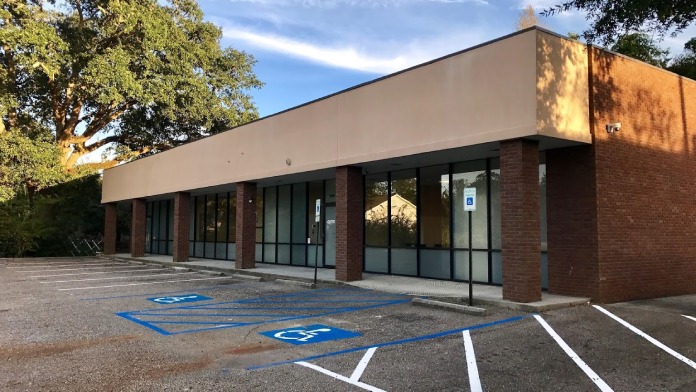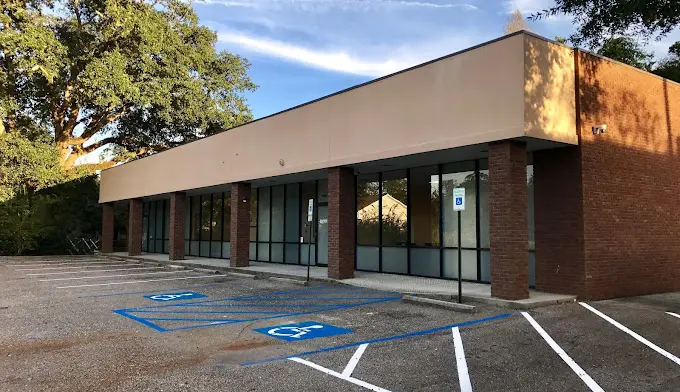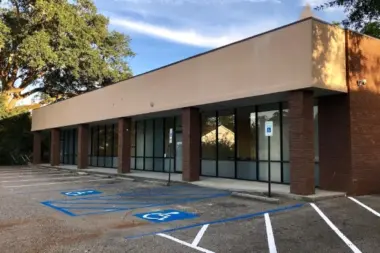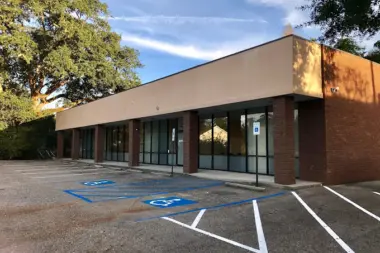While I am grateful for my sobriety I really am getting tired if being treated like less of a human. A few months back a counselor and the program director violated several of my patients rights and broke numerous codes of conduct on their part. I filed a complaint and the r ...
About New Season Treatment Center – Biloxi
New Season is a CARF accredited opioid addiction recovery center. They have treatment locations in 20 states where they support opioid addiction education efforts. One of the treatment locations is in Biloxi, Mississippi.
Here, clients receive medication assisted treatment (MAT) for detoxification, as well as mental health treatment for co-occurring disorders. They accept Medicaid, Medicare, TRICARE, and a wide range of private providers. They treat adults 18 and over. The facility has designated areas for vaping and smoking.
Serving All Populations in Biloxi, Mississippi
The staff at the facility welcomes clients from all backgrounds. They have experience treating pregnant and postpartum women, veterans, active duty military personnel, and those from the LGBTQ+ community. Additionally, they treat clients with trauma or sexual abuse backgrounds, as well as those with co-occurring mental health disorders.
The facility is less than three miles from the Broadwater Beach Marina, where there’s a serene and peaceful environment with scenic views of the water. You can spend some time walking and reflecting between treatment sessions in this beautiful place.
Integrating Addiction Treatment for Successful Outcomes
New Season has treated clients since 1986, and provides an integrated experience through the combination of counseling, MAT, and compassionate care. They offer group, individual, and family counseling.
The staff’s counseling approach helps you explore the nature of addiction and its effects on the brain and behavior. You’ll identify the underlying reasons for your substance use. You’ll learn healthier coping skills, identify the triggers that contribute to your addiction, and plan strategies for long term sobriety.
The outpatient center offers flexible treatment options for clients attending school or going to work. Additionally, some clients may be eligible to receive take home medication if they meet specific criteria, making the program even more convenient.
Latest Reviews
Rehab Score
Gallery




Other Forms of Payment
Private insurance refers to any kind of healthcare coverage that isn't from the state or federal government. This includes individual and family plans offered by an employer or purchased from the Insurance Marketplace. Every plan will have different requirements and out of pocket costs so be sure to get the full details before you start treatment.
Self-pay involves paying for treatment out of your own pocket. You can use savings or credit, get a personal loan, or receive help from family and friends to fund your treatment. If you don't have insurance or your insurance plan doesn't cover a specific program, self-pay can help ensure you still get the care you need.
Medicare is a federal program that provides health insurance for those 65 and older. It also serves people under 65 with chronic and disabling health challenges. To use Medicare for addiction treatment you need to find a program that accepts Medicare and is in network with your plan. Out of pocket costs and preauthorization requirements vary, so always check with your provider.
Military members, veterans, and eligible dependents have access to specific insurance programs that help them get the care they need. TRICARE and VA insurance can help you access low cost or no cost addiction and mental health treatment. Programs that accept military insurance often have targeted treatment focused on the unique challenges military members, veterans, and their families face.
Medicaid is a state based program that helps lower-income individuals and families pay for healthcare. Medicaid covers addiction treatment so those enrolled can use their coverage to pay for rehab. When a program accepts Medicaid the client often pays very little or nothing out of their own pocket.
Addiction Treatments
Levels of Care
Outpatient Programs (OP) are for those seeking mental rehab or drug rehab, but who also stay at home every night. The main difference between outpatient treatment (OP) and intensive outpatient treatment (IOP) lies in the amount of hours the patient spends at the facility. Most of the time an outpatient program is designed for someone who has completed an inpatient stay and is looking to continue their growth in recovery. Outpatient is not meant to be the starting point, it is commonly referred to as aftercare.
Clients in an intensive outpatient program (IOP) require substantive support as they prepare to transition into standard outpatient (OP) care or community-based recovery programs, such as AA. Most IOP clients are in early recovery or are at an elevated relapse risk. Intensive outpatient treatment generally involves multiple, extended sessions weekly. Many programs require clients to participate in a minimum of nine therapeutic hours weekly. The most common treatment modalities include psychotherapy, recovery education, and medication assisted treatment.
Drug and alcohol addiction often takes a heavy toll on one's body. Over time, a physical dependence can develop, meaning the body physiologically needs the substance to function. Detox is the process of removing drugs and/or alcohol from the body, a process that can be lethal if mismanaged. Medical detox is done by licensed medical professionals who monitor vital signs and keep you safe, healthy, and as comfortable as possible as you go through detox and withdrawal.
Clients engaged in a rehab aftercare program approach recovery as a life-long process. Drug rehab aftercare encompasses myriad services designed to promote clients' continued sobriety as they reintegrate into their home, workplace, and community. Clients generally partner with their case managers and recovery team to define their recovery needs and goals and to identify and access the services they need to promote them. These often include peer coaching, career counseling, and 12 step program induction.
Treatments
The goal of treatment for alcoholism is abstinence. Those with poor social support, poor motivation, or psychiatric disorders tend to relapse within a few years of treatment. For these people, success is measured by longer periods of abstinence, reduced use of alcohol, better health, and improved social functioning. Recovery and Maintenance are usually based on 12 step programs and AA meetings.
For those seeking help with addiction, a drug rehab in Mississippi offers the necessary care to achieve long-term recovery. Options include inpatient, residential, partial hospitalization, intensive outpatient, and long-term drug rehab in Mississippi.
Opioid rehabs specialize in supporting those recovering from opioid addiction. They treat those suffering from addiction to illegal opioids like heroin, as well as prescription drugs like oxycodone. These centers typically combine both physical as well as mental and emotional support to help stop addiction. Physical support often includes medical detox and subsequent medical support (including medication), and mental support includes in-depth therapy to address the underlying causes of addiction.
Substance rehabs focus on helping individuals recover from substance abuse, including alcohol and drug addiction (both illegal and prescription drugs). They often include the opportunity to engage in both individual as well as group therapy.
Programs
Adult rehab programs include therapies tailored to each client's specific needs, goals, and recovery progress. They are tailored to the specific challenges adult clients may face, including family and work pressures and commitments. From inpatient and residential treatment to various levels of outpatient services, there are many options available. Some facilities also help adults work through co-occurring conditions, like anxiety, that can accompany addiction.
Young adulthood can be an exciting, yet difficult, time of transition. Individuals in their late teens to mid-20s face unique stressors related to school, jobs, families, and social circles, which can lead to a rise in substance use. Rehab centers with dedicated young adult programs will include activities and amenities that cater to this age group, with an emphasis on specialized counseling, peer socialization, and ongoing aftercare.
Recovery is most successful when clients feel accepted and validated by their peers and treatment providers. Facilities that offer LGBTQ-inclusive programming are committed to creating a safe space where everyone can grow and recover without fear of judgment or discrimination. They will have dedicated policies in place to create a safe and supportive environment that fosters free expression.
Serving in the military is both mentally and physically challenging, and can result in trauma that persists even after combat ends. Military programs are tailored to the specific and often complex needs of active duty personnel, veterans, and military families. Clients often access these programs through the U.S. Department of Veterans Affairs (VA).
Clinical Services
If you participate in cognitive behavioral therapy in Mississippi, you can expect to receive homework exercises that allow you to practice the skills you discuss during your sessions. You'll learn how to develop coping skills and change your thinking and behavior so you can break free from addiction.
Group therapy is any therapeutic work that happens in a group (not one-on-one). There are a number of different group therapy modalities, including support groups, experiential therapy, psycho-education, and more. Group therapy involves treatment as well as processing interaction between group members.
In individual therapy, a patient meets one-on-one with a trained psychologist or counselor. Therapy is a pivotal part of effective substance abuse treatment, as it often covers root causes of addiction, including challenges faced by the patient in their social, family, and work/school life.
Counselors who apply motivational interviewing take on the roles of listening and reflecting. Their goal is to facilitate conversation about change and commitment to change. They offer support and seek to empower the client to make changes in their life.
The goal of trauma therapy is to help you heal from the effects of witnessing or experiencing a traumatic event. You are provided support to process those traumatic memories and then develop coping strategies to improve your emotional resilience and ability to cope in society.
Research clearly demonstrates that recovery is far more successful and sustainable when loved ones like family members participate in rehab and substance abuse treatment. Genetic factors may be at play when it comes to drug and alcohol addiction, as well as mental health issues. Family dynamics often play a critical role in addiction triggers, and if properly educated, family members can be a strong source of support when it comes to rehabilitation.
Accreditations

The Substance Abuse and Mental Health Services Administration (SAMHSA) is a branch of the U.S. Department of Health and Human Services. Established in 1992 by congress, SAMHSA's mission is to reduce the impact of substance abuse and mental illness on American's communities.
SAMHSA Listed: Yes
Contact Information
1989 Pass Road
Biloxi, MS 39531